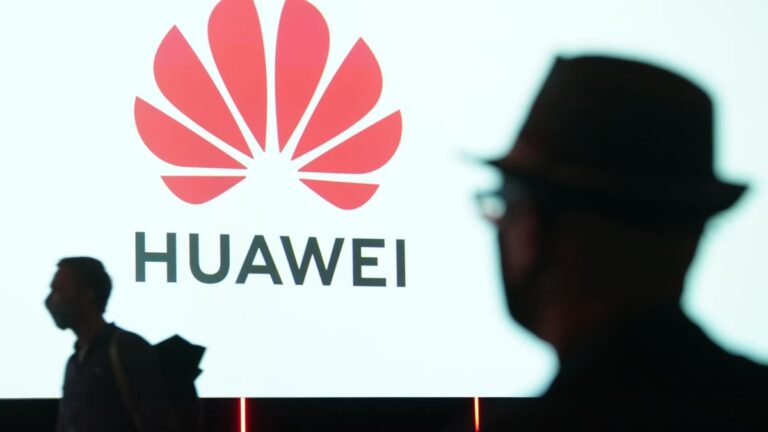- The United States said Tuesday it has revoked some licenses to sell chips to China’s Huawei as part of its latest effort to rein in China’s technological prowess.
- “As part of this process, we may revoke export licenses, as we have done in the past,” a Commerce Department spokeswoman said, declining to comment on specific licenses. “However, we can confirm that we have revoked certain licenses for exports to Huawei.”
- Huawei’s consumer business has seen a resurgence since launching the Mate 60 Pro smartphone in August.
The United States has revoked some permits for chip exports to Chinese tech giant Huawei, the Commerce Department told CNBC on Tuesday, in the latest effort to rein in China’s high-tech power.
“Given the ever-changing threat and technological landscape, our administration continually evaluates how to best protect our national security and foreign policy interests,” a Commerce Department spokesperson said in a statement. Stated.
“As part of this process, we may revoke export licenses, as we have done in the past,” a spokesperson said, declining to comment on specific licenses. “However, we can confirm that we have revoked certain licenses for exports to Huawei.”
Huawei was placed on a U.S. trade blacklist in 2019, barring U.S. companies from selling technology, including 5G chips, to the Chinese tech giant, citing national security concerns. In 2020, the United States tightened chip regulations against Huawei, requiring foreign manufacturers using American chip manufacturing equipment to obtain a license before selling semiconductors to Huawei.
Huawei’s consumer business, which includes smartphones and laptops, has seen a resurgence since launching the Mate 60 Pro smartphone in August.
TechInsights’ analysis of Huawei’s Mate 60 Pro smartphone reveals that it uses an advanced chip from SMIC, a top Chinese chipmaker. The smartphone is also said to have 5G connectivity, which US sanctions were trying to block.
US chip companies Qualcomm and Intel are two of the companies supplying chips to Huawei. Qualcomm said in an SEC filing earlier this month that it expects its business to be “further impacted” as customers such as Huawei develop their own chips.
“While we have continued to sell integrated circuit products to Huawei under license, we do not expect to receive any product revenue from Huawei after this fiscal year,” Qualcomm said in a statement.
“Furthermore, to the extent that Huawei’s 5G devices take share from Chinese OEMs that utilize our 5G products or from non-Chinese OEMs that utilize our 5G products in devices they sell to China, our revenue and “Our results of operations and cash flows may be affected and may be further affected,” Qualcomm said.
Last month, Huawei launched a new mobile phone lineup, the Pura 70 series, to compete with Apple in China.
Apple faces pressure from Huawei in China as iPhone sales fell 19.1% in the first quarter, but Huawei’s smartphone sales soared 69.7%, according to Counterpoint Research.
Huawei’s net profit in 2023 increased 144.5% year-on-year to 87 billion yuan (approximately $12 billion), partly due to sales of the Mate 60 Pro in China, the company revealed in March. .

